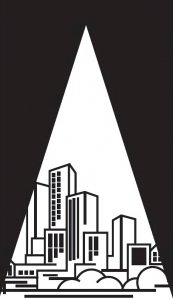
Urban Challenges Forum returns to Douglas College
By Naomi Ambrose, Staff Writer, and Tania Arora, Staff Reporter
During her welcoming remarks Shaun Tyakoff, the Associate Dean of the Faculty of Humanities and Social Sciences at Douglas College, said that the Balancing Act: Revitalization with gentrification event was the first in a series of Urban Challenges Forums this year. The event aimed to discuss the unique challenges New Westminster faces when it comes to urbanization. Students had the opportunity to come out and learn that city dwellers aren’t supposed to be crushed for money. Rather, they are essential for monetary growth.
Apart from introducing the guest speakers, Michael McPhee, the moderator at the Balancing Act event, further elaborated on the purpose and format of the event. The two guest speakers, Dr. Tiffany Muller Myrdahl and John Stark, addressed the audience for 10 minutes. At the end of their presentations, the audience had opportunities to ask them questions.
In her presentation, Dr. Myrdahl, a senior lecturer in the Department of Gender, Sexuality and Women’s Studies and the Urban Studies Program at Simon Fraser University, referred to empirical research that focused on the dynamics and challenges of gentrification and revitalization. The empirical research included the Carnegie Community Action Project (CCAP). The project focuses on housing and land issues that affect residents in the Downtown Vancouver area.
Dr. Myrdahl also referred to a “Hot Pink Paper” pamphlet that was developed by the international society Women Transforming Cities and some other organizations that address issues faced by women and girls. The Hot Pink Paper pamphlet is also a 2018 municipal campaign that asked the 2018 municipal candidates to address housing and social issues that affect women and girls.
In addition to discussing empirical research, Dr. Myrdahl’s presentation consisted of four key questions. The first question focused on how regulation prevents displacement. The second question dealt with the practice of “social mix” policies. The third question focused on the view that urban redevelopment is about people and services. Finally, the fourth question was an exploration about who benefits from a “balanced” approach.
Half of the world’s population dwells in cities. The rest of the world is on its way to becoming urbanized. According to The Canadian Encyclopedia, 45 percent of Canadians lived in an urban area (a community with at least 1,000 residents) in 1911; by 2011, the percentage had grown to 81. The Encyclopedia states that “According to the 2014 United Nations report on global urbanization, Canada ranks 40th in the world. It is more urbanized than the United States, Norway, France and Germany, but less so than countries such as Japan, Belgium, Australia, Israel, the United Kingdom and Argentina.”
In his presentation, John Stark, a senior social planner in the City of New Westminster, shared insights about the social issues and challenges that the City of New Westminster encountered during the city’s revitalization efforts. Stark indicated that homelessness was one of the main social issues.
Stark also referred to several initiatives taken by the City of New Westminster to address the gentrification and revitalization challenges. One of the solutions involved the construction of Qayqayt Elementary School at 85 Merivale Street, New Westminster. Another initiative involved the development of 66 units of non-market housing for retired artists. The units will be located near the Anvil Centre.
The United Nations’ report titled World Urbanization Prospects: The 2018 Revision said, “As the world continues to urbanize, sustainable development depends increasingly on the successful management of urban growth, especially in low-income and lower-middle-income countries where the most rapid urbanization is expected between now and 2050.” The report stated that policies must address both urban and rural issues, strengthening the connections and integration between urban and rural dwellers to improve the lives of all.
At the Balancing Act event, the audience’s questions addressed a range of topics and themes including gentrification, revitalization, urban planning, and geography. These topics and themes involved analyzing the role of gender, the challenges encountered by persons with disabilities, the challenges of maintaining and adapting a sense of place, and the role of the provincial and federal government in the implementation of initiatives and solutions.
Towards the end of the event, Tyakoff also provided details about how to engage in further dialogue about the issues around urban development—the next Urban Challenges Forum will be held on November 21.

